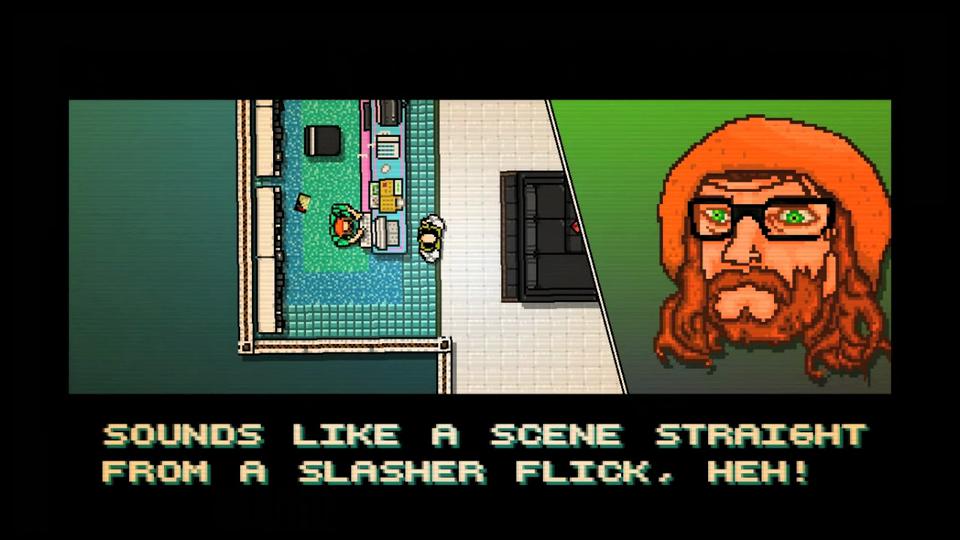Game of the Year 2012: "When It's Done" Edition
By PerfidiousSinn 0 Comments
Okay, April is late enough. I'm officially at the cutoff point where I feel like I played enough games in 2012 to make a list I'm satisfied with.
Most years, I struggle to find ten games I played that resonated enough with me to even consider a Top 10 Game of the Year list. Partly because of the unstoppable backlog carrying over from last year, partly because I might be a snob who refuses to step outside of my comfort zone.
Last year, I took a few steps away from the genres I normally enjoy to compile this list. The length of the entries may get longer as the list goes on further, but only because I appreciated many of them for reasons further than strong gameplay, which anyone can “get” by playing the game themselves.
It’s not a recommendation list or “10 Games To Play Before You Die”. They’re just ten games that I felt were worth the time, for one reason or another.
#10 - Prototype 2 - Radical Entertainment / PC/PS3/360
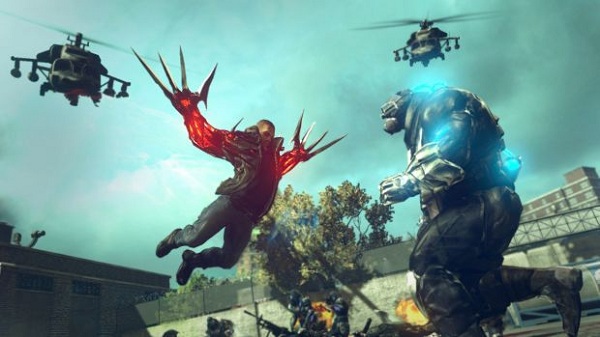
Lots of games get incorrectly labeled as “power fantasy” titles, where you are supposedly an unstoppable force who can do anything you want, making the world your playground.
Prototype 2 is one of the few games where the "power fantasy" label is correct. Open world games often make a misstep in having monotonous travel, but this is certainly not the case in this game. You can run or fly anywhere, and feel completely in control. The combat is a marked improvement from its predecessor, giving you multiple tools to deal with enemies while still respecting the combat style that each player will develop. No Whipfist domination this time. The difficulty curve is steady and while your enemies are challenging, there is always a way to overcome them and prevail.
The dread of facing skyscraper-sized enemies in Prototype 2 is only trumped by the satisfaction of taking them down. All the hits you land on enemies feel and sound like they hurt, giving each encounter a sense of bone-crushing satisfaction.
Prototype 2 also has an excellent final encounter that tests your skills and dexterity against a unique foe. The final boss battle plays nothing like any other fight in the game, and tests your skills unlike any other fight in the story. Prototype 2 keeps the pace up throughout, and ends up with one of the most satisfying conclusions of any game on this list. If flying across half of New York to piledrive a helicopter into the ground is wrong, I don’t ever want to be right.
#9 - Binary Domain - SEGA / PC/PS3/360
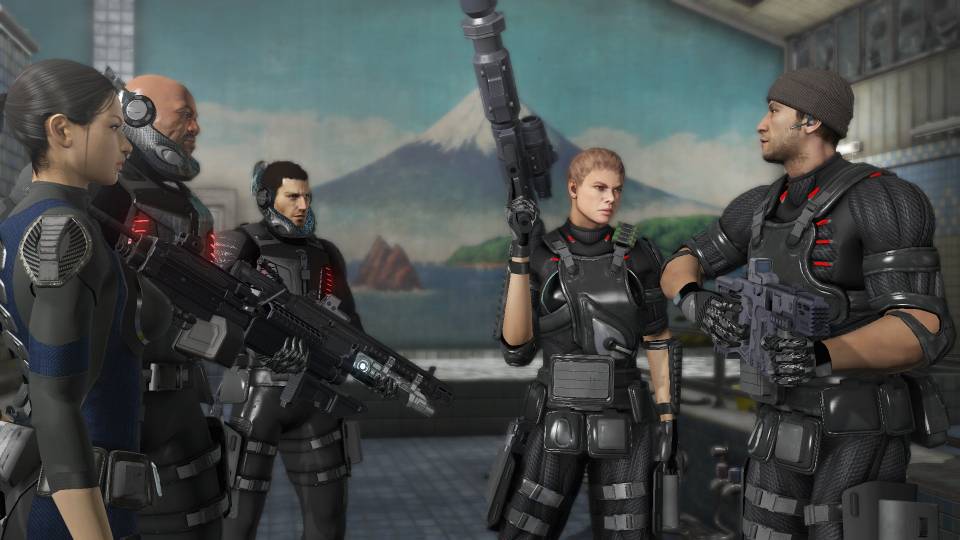
Winner: The “Kill.Switch Award” For Excellence In Cover-Based Shooting
Well, this was ten dollars well spent.
Maybe it’s because of the budget price I picked up the game at. Or because SEGA’s failing track record. Either way, I was not expecting the level of quality I got from Binary Domain. On the surface, it’s a basic third person cover based shooter. But the enemy design is where Binary Domain steps it up a bit.
Each enemy you face is a highly intelligent robot that adapts to combat on the fly. There’s a cool limb damage system that makes them react accordingly depending on where you shoot: blast the rifles out of their hands, and they might scramble up to melee you or scour the field for a new gun.
Shoot their legs out, and they’ll crawl toward you, still attacking. The various enemy types, with unique reactions and weapons, really come into play once you start getting overwhelmed. The game forces you to prioritize targets on the fly: kneecap them all so you can have some breathing room? Take your time to aim for headshots and blow them up faster? The answer is never the same as the enemies get smarter and more types are introduced.
Speaking of breathing room, Binary Domain is impeccably paced. There are very few breaks in between the action, making it very possible to reach the game’s conclusion in one sitting. It rarely lets up.
The story also plays with science fiction cliches in a surprisingly thoughtful way. “Human-like robots take over” is hardly new, but your squad’s character development through the simple “Trust” system can make pulling the trigger difficult, even though it’s not a full-blown moral choice system. They start off as stereotypes, but as things get more personal, their true, and sometimes shocking, motivations come out.
The microphone gimmicks aren’t even a factor. Turn that off and enjoy the best sci-fi TPS of 2012.
#8 - Sleeping Dogs - United Front Games, Square Enix London/ PC/PS3/360
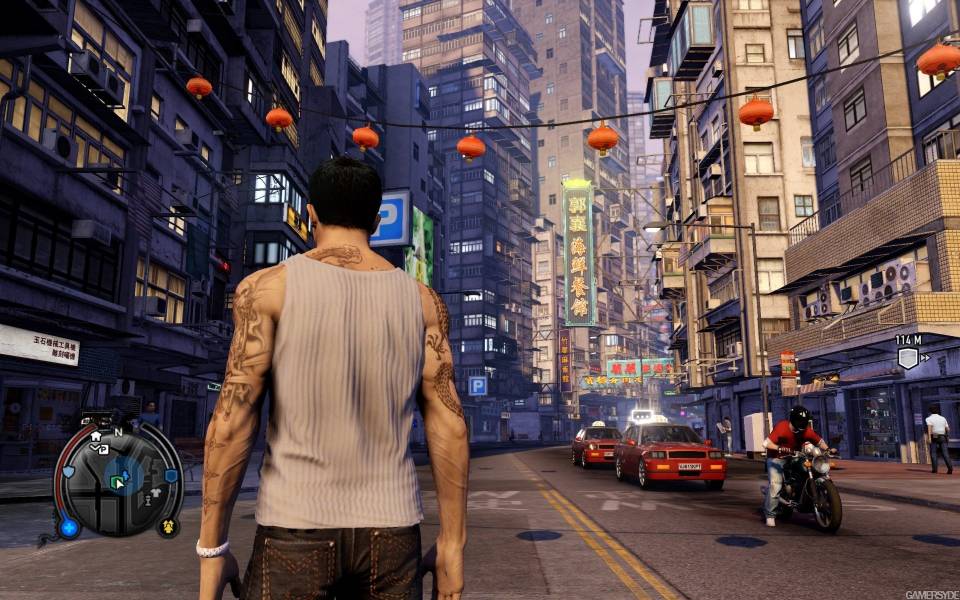
Winner: The “Friday The 13th” Award For Excellence In Game Over Screens
Making a really great open-world game takes effort that a lot of developers aren't willing to put in. Somehow, the troubled development of Sleeping Dogs lead to one of the most polished games in the genre and not a complete mess.
Most open-world games have poor hand-to-hand combat. By borrowing and refining the system popularized by Batman: Arkham Asylum, they made hand-to-hand combat that’s fun throughout the entire game. There’s always a new move to unlock or brutal environmental kill to see. You're even rewarded with bonus experience by varying your combos, so there's really no reason to do the same moves unless you're really boring.
Car chases in these games are poor, so the Sleeping Dogs team gave you plenty of options to make them less annoying. Shoot out the tires easily with a generous slow-motion feature. Ram into a car enough and it stops. Or you could just jump out of your car into the other car and rip out your target, Just Cause 2 style.
Even the mission structure is carefully crafted to tone down the amount of “drive here, shoot this man” missions that I'm tired of.
Simple stuff, right? It’s not a reinvention of the genre, it’s just a very thorough polishing. The polish carries over to the absolutely gorgeous graphics in both the city and character models. The story is predictable, but the excellent facial animations and voice acting still drew me in. Even the downloadable content is smartly designed. The game is full enough without buying more, but the content you can buy are additional, full-fledged story scenarios that don’t feel like they were egregiously cut from the game.
The game almost imploded during development multiple times, but I’m glad it didn’t. Here is how you make a strong open-world game. Just take out all the boredom and things that waste time. It's simple!
#7 - The Walking Dead - Telltale Games/ Mac/PC/iOS/PS3/360
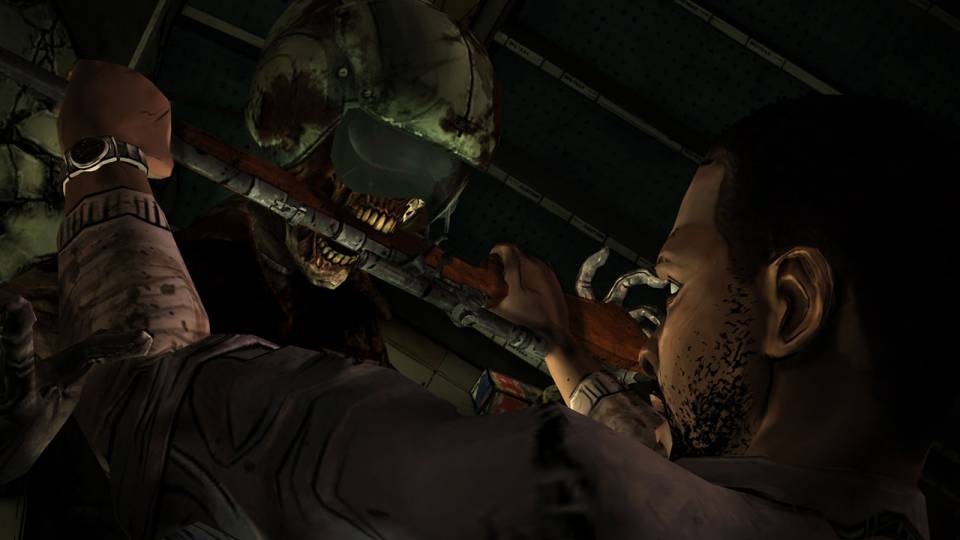
Plenty of games write video game characters like video game characters. Exaggerated personalities and actions that disconnect players from the character seems to be the norm.
What I enjoyed about The Walking Dead was the writers giving the characters realistic motivations and reactions. Not all of these are pleasant, but they felt like how human beings would react in dire situations.
Since the gameplay is limited to point-and-clicking through environments and action Quick Time Events, there’s no way to truly “fail” in The Walking Dead. There aren’t even many puzzles, despite the adventure game format.
Why this game kept me glued to my seat was a strong sense of agency. Your conversations and actions with others have a visible effect on how they treat you. How they feel about you comes into play when you’ll inevitably have to make a difficult decision. Instead of going through dialogue trees to exhaust every option, I found myself contemplating what to ask, to which person, and when.
One wrong misstep could lead to someone who supported you saying “screw you, do this on your own” when you needed help the most. The things that end up happening to you and BECAUSE of you feel like hard punches to the gut, and it is effective because the characters feel more like people than plot devices.
The Walking Dead was a watercooler game for me. I enjoyed the episodes as much as I enjoyed talking with friends who played the game, debating why we made some of those messed-up decisions we did.
I value replayability of games because of how few of them I play. However, I don’t think I’d replay The Walking Dead soon. My own experience with it was something I want to keep in my memory, and playing it through to see all the different permutations of the story would somehow make it less special. The way the story played out was my creation, and the emotional payoff of The Walking Dead is so strong that I could remember it if I didn't play again for years.
#6 - Mark of the Ninja - Klei Entertainment/ XBLA/PC
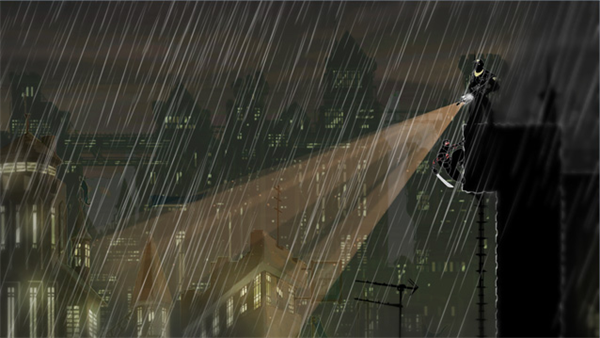
Winner: The “Ratchet & Clank” Award For Excellence In New Game Plus Design
When I really sit down and think about it, I can’t remember a single moment of Mark of the Ninja where I wasn’t entertained. There are a few weak levels, and it definitely goes on for too long. Yet, I engaged throughout the entire game.
It’s one of the most well-designed stealth games I’ve played. On paper, it sounds like your character would be too powerful with the information provided you. You can tell when you are visible, what items you can hide behind, the range of your ninja tools, even how much noise you are making through audible sound waves.
This information proves to be necessary to level the playing field. Each room is a tension-filled puzzle, because enemies can kill you in an instant. You’re driven to maximize your score by eliminating enemies in unique fashion, but you are given the equipment to kill them all in direct combat or sneak past them if need be. It’s not the typical stealth game where being spotted leads to battles with poor controls: you are always capable of escaping the situation or killing all of the guards without being taken out, because the controls are excellent and all of the visual design perfectly communicates what you can do.
Each level adds a new layer of complexity in the environments and enemy types, but also gives you more tools to deal with them while teaching you how to use these tools effectively.
This is all a very long-winded way of saying it’s an excellent stealth game, one of the best available, even. The tension of being so fragile that one mistake can kill you mixed with the feeling that you are clever and well-equipped enough to kill everyone else without a scratch. It’s a specific type of tension that few of these games get right.
Also, the New Game Plus completely changes turns the tables. It’s a much different challenge that’s worth going through even after finishing the campaign once.
#5 - Persona 4 Arena - Arc System Works, Atlus/ ARC/360/PS3
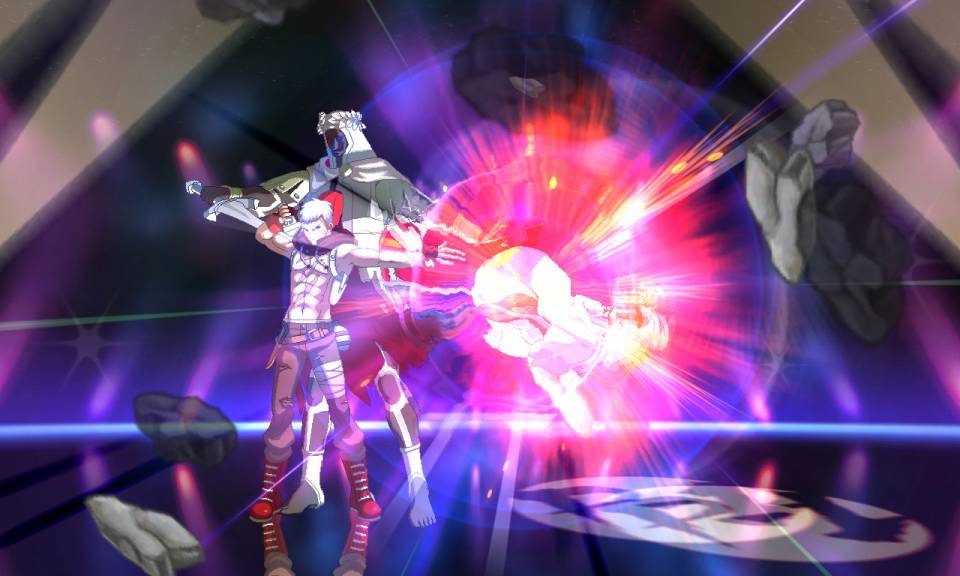
Out of all the games on this list, Persona 4 Arena made me lose the most sleep. Before bed I was watching some combo videos for my main character, Yosuke. A few hours after I fell asleep, I got an idea for a new combo. So I got up, scribbled some notation on paper, set it on my desk, and went back to bed. Oh, and I watched a couple more combo videos before sleeping.
I might have a skewed perception of this; after all, most people don’t play Persona 4 for 38 straight weeks, but Persona 4 Arena was worth my money for the story. If you’ve beaten Persona 4 and had the brief “I’ll never play another game this good” blues as I did, get Persona 4 Arena. All I really wanted was a direct sequel to the game I spent hundreds of hours on, and I got it. I got to spend more time with those flawed but endearing characters, as well as some from Persona 3, solving a mystery like only they could do. The script is just as sharp and well-acted, the style is all there including the vivid colors and fantastic soundtrack, and it doesn’t shy away from including the same type of highly emotional moments that Persona 4 did so well.
Plus, there’s a really good fighting game in here. I’m fairly new to the genre, but Persona 4 Arena goes out of its way to be accessible in ways that most fighting games don’t. There’s a tutorial that teaches you every mechanic in the game, a feature-rich training mode, and advanced tutorials for each character to teach you their special moves and combos. There are limited comeback mechanics like an invincible reversal move to get you out of bad situations, and a Burst that lets you break an opponent’s combo roughly once per round. Even though my characters aren't “the best”, I feel like my losses are because of my own mistakes and not character choice. Each member of the cast are very different, yet feels balanced enough that you can choose a character you feel comfortable with and win, if you can take advantage of their unique strengths.
The system is deeper than it looks as well. You can mash the Auto Combo for a while, but it’s easy to block and the game quickly encourages you to branch out to explore all of your options. It takes a lot of time to learn what your character is capable of, what combos work on which characters, and when the heck to use stuff like the short hop (the answer is just don’t). This all works because the feeling of mastering your character is worth all the work.
Persona 4 Arena is mandatory playing for any fan of Persona 4, and an easy recommendation to anyone looking for a great fighting game.
#4 - Rock Band Blitz - Harmonix / XBLA/PSN
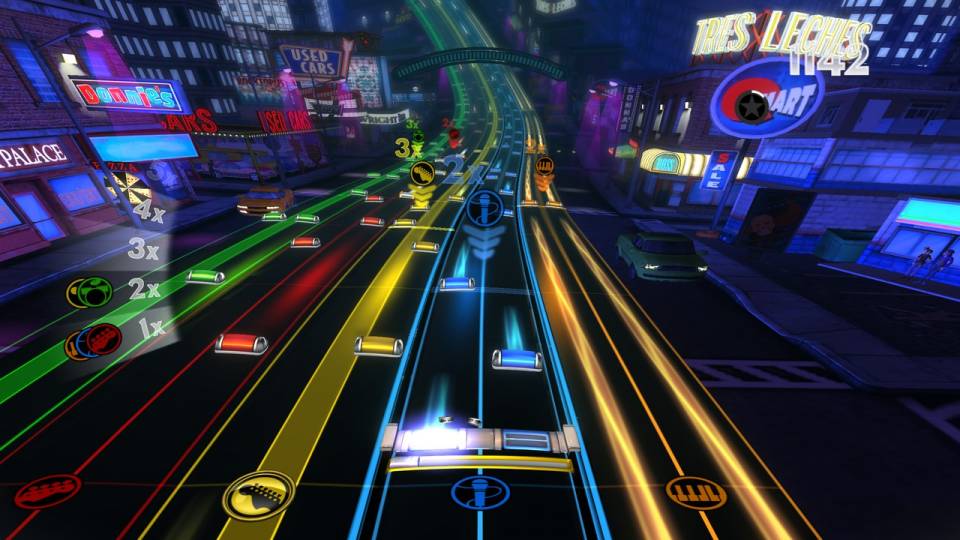
I’ve spent more money on Rock Band that most rational human beings should. Between buying instruments, downloading new songs, and buying countless bottles of Pepsi (long story), I’d say I've spent…well, let’s not think about it too hard.
Yet, I haven’t played Rock Band 3 in quite a while. By the time it came out, I had pretty much hit the peak of my skills in guitar and bass, and had no room for any other instruments. So when Rock Band Blitz was announced, I was feeling like I might be done with the series. Little did I know that Blitz would prove me completely wrong.
Rock Band Blitz favors competition heavily over co-operation. The chase of a high score, and the ever-present leaderboards and options to start betting competitions against friends for in-game currency made me realize something about myself: I’m extremely, dangerously competitive.
The high-score strategy for Blitz rewards multiple plays of the same songs to get higher scores. I experimented with the combinations of different power-ups and passive boosts to get high scores on songs I already played ten times before. (Hint: Use Super Vocals on "One Week". Not Super Drums!)
In the end, Rock Band Blitz did something the series never accomplished before. It made every single song fun to play, regardless of the chart. I spent years building my Rock Band song collection back when I played it with fake plastic instruments, and this new game started the cycle all over for me. Sorry, wallet.
#3 - Lollipop Chainsaw - Grasshopper Manufacture / PS3/360
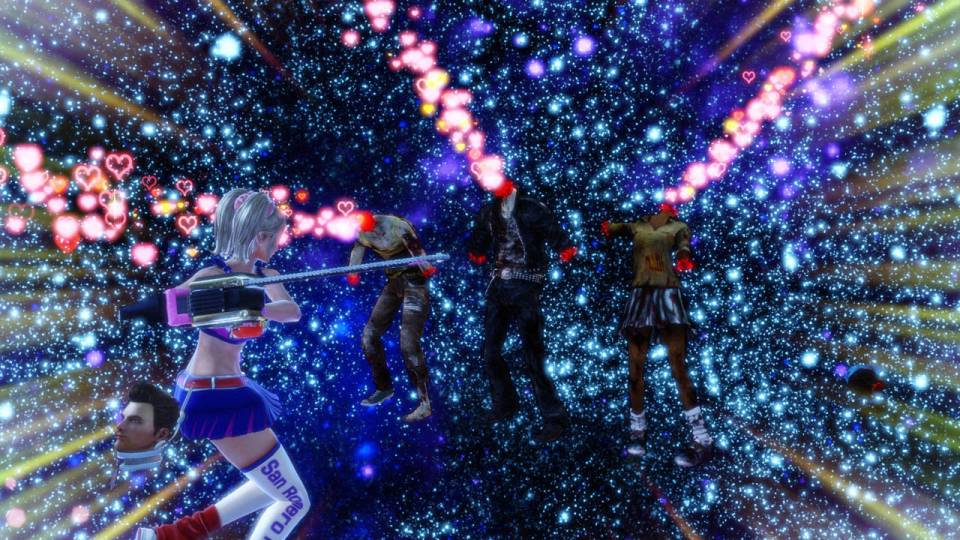
Winner: The “Saints Row The Third Award” for Excellence in Licensed Music
My opinions for most games associated with Suda51 can be summed up in a short statement:
“This game’s style is fantastic! But it really became a chore to play.”
It’s a shame because the games nail everything else except keeping the gameplay interesting throughout. Imagine my surprise when Lollipop Chainsaw averted this for the first time.
It’s in the same style of a Bayonetta or Devil May Cry game, but it doesn't feel as fluid as those games. Still, I never felt like the game would benefit from dodge offsets or switching weapon sets on the fly. Upgrading the combos expands Juliet’s moveset to incorporate some moves for animation cancels, necessary crowd-control moves, and a few instant kills. And even though you’re only facing zombies, there is enough variation between them to keep you on your toes. They get much fiercer as the game goes on, and you’ll need to really learn how the game’s system works if you don’t want to spend it knocked on the ground.
It’s not all combat, however. Each level has a few goofy minigames like macabre variations on high school sports, and one truly memorable level where you play arcade games. It’s much better than it sounds, trust me.
Tying all of it together is the trademark style that seeps into every game Suda51 puts his name on. The soundtrack is fantastic, with incredibly clever uses of licensed music complimenting a huge original soundtrack. The bosses are just as elaborate and colorful as the main attractions of the No More Heroes series, and the humor is gleefully insane. It’s the type of game where most of the gore is replaced with hearts, rainbows, and sparkles and it makes sense.
The marketing and fanservice isn't there to distract you from a thin story. In fact, the story still has layered themes you’d expect from games associated with the developer. It’s a refreshing look at exploitation in a way you wouldn't expect. Juliet isn't as ditzy as she seems, and Nick ends up being more sympathetic and hilarious than most severed heads are. It has all the raunchy humor and surprising sweetness of a teen comedy, but there’s more to it than the cover implies.
Lollipop Chainsaw is worth starting because of its manic sense of humor, and worth seeing to the end because the gameplay is just as silly and frantic as the script. More like this please, Grasshopper.
#2 - Far Cry 3 - Ubisoft / PC/PS3/360
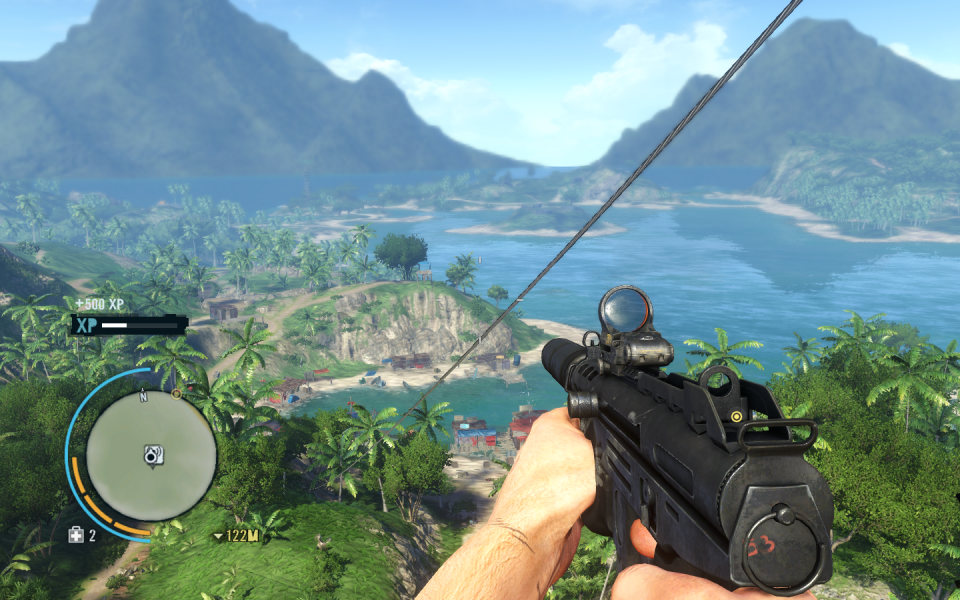
Winner: The “Banjo-Tooie Award” For Most Unexpectedly Scary Game
This is a good time to explain why I like the Assassin’s Creed games so much. The setting makes it. I enjoy the game fine enough, but the combination of a stirring soundtrack, cast of people you might recognize from history class, and absolutely beautiful landscapes to traverse makes the experience much more memorable.
I feel like the Assassin’s Creed franchise lost its way with Assassin’s Creed 3. The beautiful graphics and fresh setting drew my interest, but I never finished the game due to its awful control, frustrating mission design, and pointless sidequests.
So, I brought that up to bring this up. Far Cry 3 contains everything I like about Assassin’s Creed and nothing I don’t.
These comparisons aren’t completely random, as the structure is similar enough to invite them. Main story missions in FC3 are open at any time, but you are encouraged to climb towers to uncover your map and nearby side missions. Why this structure works is that every side mission is enjoyable and has a desirable reward.
My personal favorite were hunting down animals for their skins, which sometimes leads to encounters with powerful “legendary” animals. These hunts give you the provisions you’ll need to improve the amount of items you can carry. It also highlights one of the most intriguing things about the game: the interaction between the various animals on the island and your enemies. I remember a time where I was attacked by two bears while staking out a pirate camp. Instead of sneaking into the camp to take out the pirates myself, I ran directly through it. After a few seconds of confused shouting and frantic gunfire, the bears and pirates were dead, and the camp was mine.
Far Cry 3 is full of “I wish I recorded that" moments. The story is serviceable, but doesn't live up to the cool things you’ll inevitably do while exploring. There are some disturbing moments that take full advantage of the perspective to be genuinely horrifying in ways that most horror games aren’t. If you’re paranoid about things sneaking up on you, prepare to spend a lot of time jumping and shouting when something unexpected sneaks up on you. And the excellent voice acting and facial animation makes the main character’s actions pretty disturbing, but unfortunately the story loses steam quickly and peters out due to plot holes and a poor ending.
Despite that, Far Cry 3 is an example of first person shooting and open world gaming at their peak. The combat supports whatever playstyle you want, from tactical cover-based combat, to fully realized stealth, to picking up the biggest machine gun you can find and finishing missions with guns constantly blazing. I personally played the game like Assassin’s Creed, relying on distraction, knives, and silenced weaponry to take out enemies with minimal direct combat, and the game’s open-ended structure makes me wish there was an option to replay missions, just to see how much I could experiment with it.
There is a lot to do in Far Cry 3, and I didn’t even mention the skill tree, economy, minigames, multiplayer, and co-op. The thing that sets it apart from that other Ubisoft game is that all of the distractions are fun and directly rewarding to accomplish. It never wastes your time, and you feel like your time was well-spent, whether it’s spending ten minutes hunting down boars or thirty minutes playing poker.
#1 - Hotline Miami - Dennation Games/ PC/Mac
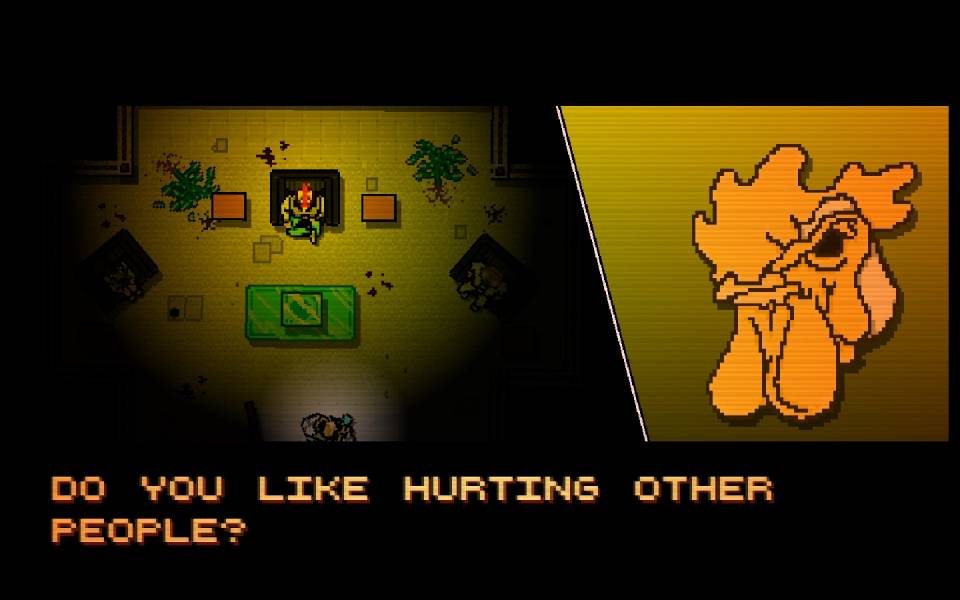
Winner: The “Spec Ops: The Line Award” For Excellence In Making You Feel Like A Terrible Person
My hand aches because I’ve had the mouse in a death grip for ten minutes. My eyes start burning as I become aware that I haven’t blinked in about the same amount of time. I get a little self-conscious as I realize that I’ve been nodding my head and tapping my foot along to the music almost involuntarily. I realize how fast my heart is beating because I’ve held my breath too long. I felt like that at the end of every level in Hotline Miami.
This is the one game that grabbed my attention every second that I played, and refused to let it go. Most games let me put down the controller and space out during cutscenes, but that never crossed my mind during Hotline Miami. I was always on the edge of my seat, jamming to the music and the rhythm of gunshots and slashes as I wiped out buildings full of white-suited faceless goons. Each room in the game is a thrilling combat puzzle, and figuring them out requires quick thinking and faster reflexes. It demands your concentration at all times, and while the punishment is swift and often, the reward of solving each battle is great.
I’ll admit that I’m biased toward games with great soundtracks, but Hotline Miami’s music is more than just window dressing. It’s such an integral part of the experience that you can’t just turn it off or switch it out and fully "get" the game. The soundtrack is bass-heavy, driving, and sinister. Sinister because it serves to distract you from what you’re doing. I’m nodding my head to the beat as I crack an enemy’s skull open with a baseball bat, and watch him pointlessly crawl around the room. I’m tapping my foot to my favorite song as I punch over a mobster and take him out with a power drill, in the most awful way a power drill can be used.
The simplistic graphics and loud music distract you from what’s really going on. The player is committing some really terrible acts of violence to get a high score. Eventually, I started to see things in a different light as the story opened up. Am I really the bad guy here? Are these actually mobsters wearing the same suit, or am I looking through the eyes of a traumatized individual who is seeing things the way he wants to see them? It becomes even more difficult to excuse when you start facing enemies who can’t be considered “evil” in any sense.
Hotline Miami’s use of an unreliable narrator and slightly vague narration are a little confusing, but not in a frustrating way. The subtle audio and visual cues start to expose what’s actually happening without stating it outright. It’s open to interpretation in a way that means my view of the story might be different from yours, and they’re both valid.
It could be a critique of violent games. it definitely made me question why I enjoyed the violence in this game and others so much. Am I a bad person for committing mass virtual murder for fun and relaxation? Is the violence necessary to make a compelling narrative in games? Why does so much media rely on constant violence? Do we even need it?
All I know is, I took out that whole floor of enemies with just the power drill execution. It’s kinda slow, but that’s how you get the most points, you know. Try to beat my score.
